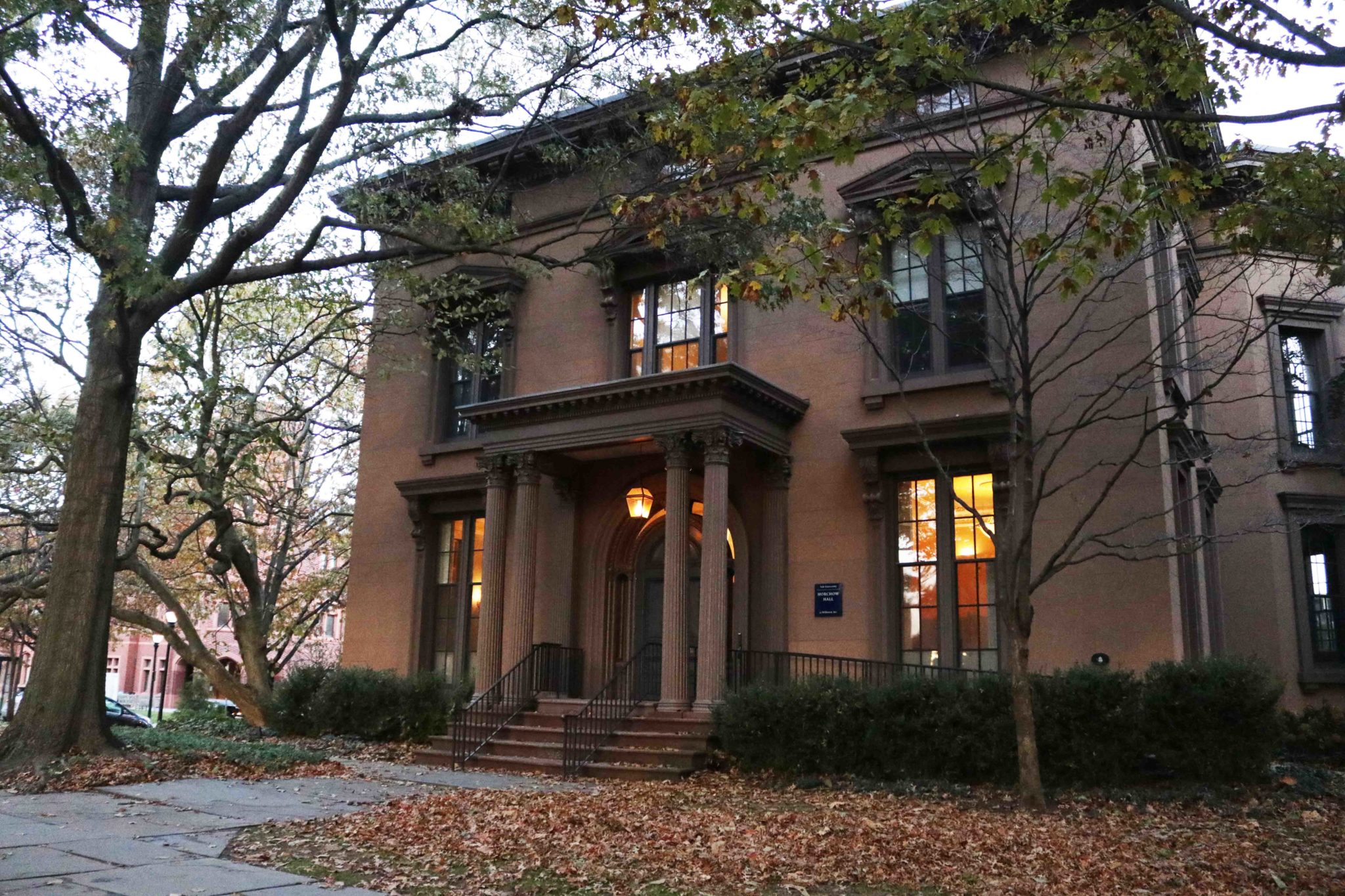
Nearly 10 years after the Jackson Institute for Global Affairs brought the first set of senior fellows to campus, the 2018-2019 cohort of prominent practitioners from various fields of international affairs continue to add to the discourse on global issues at Yale.
This academic year, the Institute invited eight new fellows and 12 returning ones to teach courses and mentor students for a year or a semester. This fall, 10 of the fellows are collectively teaching 13 courses at both the undergraduate and graduate levels. Fellows come from a diverse set of professional backgrounds, ranging from army commander to venture facility CEO, so the classes they teach vary greatly in subject, size and teaching style.
But in all of them, students can expect to hear insightful anecdotes and learn more about working in their respective fields, making enrollment in these classes extremely competitive.
Although all courses are taught through the Jackson Institute, many are cross-listed with other programs, professional schools and departments, such as East Asian Studies, Economics and Forestry & Environmental Studies.
Min Byung Chae ’20, currently enrolled in Howard Dean’s ’71 “The Politics of American Foreign Policy” class, described Dean’s incorporation of his professional background into teaching as well-balanced. He added that in discussions, Dean intertwines his experiences with the “more academic side of talking about the readings or discussing the implications of certain diplomatic landmark moments in the U.S.”
In some courses, fellows also bring in other practitioners to talk about their work and issues pertaining to their fields. One of the new senior fellows, Janine di Giovanni, who teaches a class on conflicts “through a human rights lens,” said she plans to bring an expert in post-traumatic stress disorder to class. She added that she especially wanted to highlight the prevalence of PTSD in journalists who report on traumatic events in order to give her students a deeper understanding of human rights issues.
“Their personal experiences are something I think we can really benefit from because we hear about these broad events and crises, and these are people who have lived through those situations and who have dealt with those situations,” said Minahil Nawaz ’21 regarding the speakers that visited her lecture class, “Gateway to Global Affairs,” taught by another Jackson fellow Emma Sky.
Some students, however, say that since many classes focus on practitioners’ personal experience and hands-on expertise, they provide insufficient theoretical background to students.
Henry Ziemer ’21, a student currently enrolled in di Giovanni’s class, said that he had to go back and restudy facts he learned from history classes he had taken in the past in order to contextualize topics discussed in her class.
“You do at times trade out the bird’s eye view for much more of a human view,” he said. “I think Yale as a whole tends to prioritize practical experience. … It makes for a very different global affairs program, and I really enjoy it. But I also recognize times when it can be useful to have a little more theoretical background.”
Though fellows primarily share their experiences and expertise with their students, fellows interviewed said they also learned from the their students.
Stephen Roach, who was a member of the first group of senior fellows and still teaches at Jackson, said that he “was always fascinated” by how students “engage and grapple with” the challenges of the world’s economy. He added that teaching was “an extraordinary opportunity to challenge students and learn from them.
Howard Dean, who became a fellow in 2014, also said that he was sometimes surprised by student insight.
“I remember one year there was a student from Lebanon,” he said. “She explained how people in the Middle East think about American power. …That is not a perspective that you get from most people even in the foreign policy establishment.”
Jackson fellows also interact heavily with the Yale community outside of the classroom. Some act as judges on student policy competitions; others frequently give lectures to student organizations.
They also collaborate with other faculty, inside and outside of the Jackson Institute.
“We always try to invite Yale professors [to our events], and Jackson has been a great contact,” said Muriel Wang ’20, the president of Yale International Relations Association, which hosts many talks with faculty from the Jackson Institute.
Jackson Institute was was founded in 2010.
Joe Kim | hyunjo.kim@yale.edu .







